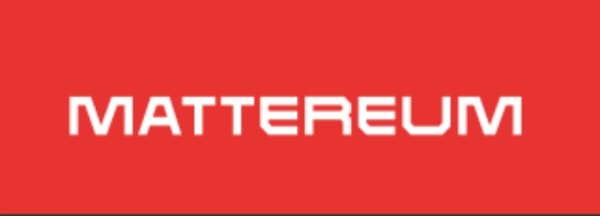What is Mattereum, anyway? (part 2)
Something complicated, but potentially REALLY important.

Mattereum is a London-based startup that aspires to change the world in a pretty deep way. I already summarized the first part of the Mattereum White Paper about what Mattereum wants to do, why and how. This post synthesizes the final part of the same paper.
Driving responsible global economic growth
As Mattereum extends its services into developing economies, the benefits of collateralizing movable property will become extremely important because it fuels economic growth.
Being able to secure transactions using collateralized assets (e.g. vehicles, machines, cows), small businesses in developing economies will have the same, easy access to growth capital currently enjoyed only by their much larger, land-owning competitors.
This levels the playing field, stimulates growth and puts more assets in the hands of those most strongly incentivized to preserve the environment.
Hernando de Soto’s work on the “mystery of capital” makes it very clear that strong, clear, enforceable property rights for land are huge facilitators of economic development because it allows the poor to borrow money to make investments in their own productive capacity, bringing them out of poverty.
Mattereum extends this logic even to non-landowners, as it brings hard, internationally legible titles to the full range of assets, not just real estate.
What’s in it for entrepreneurs?
Short answer: the possibility to “stake off-(block)chain assets”
If you are a manufacturer, staking a share in your factory makes perfect sense. Staking cash (in whatever form, including cryptocurrencies) that you could be using to buy supplies or pay for marketing is much less desirable.
With the Smart Property Register (see my first Mattereum Summary), you can credibly stake your assets and continue to use them. Working capital is preserved, but your ability to sign contracts with counterparties around the world has dramatically increased, because your stake signals credibility.
This… provides more direct enforcement than is available with the standard commercial arbitration agreements currently underpinning hundreds of billions of dollars' worth of transactions every year.
This is no small problem to have solved. Lack of enforcement or ability to secure contracts against assets costs between 5-10% of GDP in countries such as Argentina, according to estimates from World Bank economists. [Mattereum is the first] solution that does not depend on major legislative change.
TOKENIZING ASSETS
There are two kinds of right that are obvious candidates for tokenization. The first is the financial beneficial interest - the right to be paid a portion of the asset’s value if it is sold, or to receive a portion of any income the asset produces. These are commonly referred to as security tokens.
The second is the right of use - to access, possess, play, remix, display, or otherwise interact with the asset. These are commonly referred to as utility tokens.
For assets in the Smart Property Register, both kinds of tokenization are possible.
Security tokens are of interest to investors, allowing them to build portfolios of assets according to their needs.
The means to construct more fine-grained portfolios of interests in individual assets, not just a securitized class of assets, and to subject them to fully automated control opens up new possibilities for investment.
For some assets - or groups of assets - a utility token can also be created. For instance, a network of autonomous vehicles might allow utility token-holders the right to discounted journeys.
[In general] The Smart Property Register creates opportunities for ownership, investment, use and management of assets in ways that increase their value and utility substantially, and the addressable market of assets can be measured in trillions of dollars.
Asset governance, from pebbles to ecosystems
The Mattereum Smart Property Register breaks down the traditional concept of ownership, separating out legal title, financial beneficial interest, and possession or use of an asset. At the point where an asset is on-boarded to the Register, the owner defines the governance model attached to the asset. This enables assets to be traded while ensuring that any non-monetary, or longer term issues are considered.
Since the Register will continue to hold legal title to the asset indefinitely, it becomes possible to take a long term view of the best way to manage the asset.
Today, we are talking about governance for fine instruments. Tomorrow, we will be ensuring that forests, rivers and oceans are maintained and managed for generations to come.
This opens up new solutions to problems such as climate accounting. Tokens could represent carbon offsets or credits, and assets could be set up to allow use only if the user has paid in enough carbon credits to offset the carbon produced in typical usage. By fully accounting for carbon costs over the asset lifecycle, [Mattereum would] carbon-neutral or carbon-negative usage to be built right into the legal structure of the asset itself.
(This post was drafted in May 2020, but only put online in August, because… my coronavirus reports, of course)